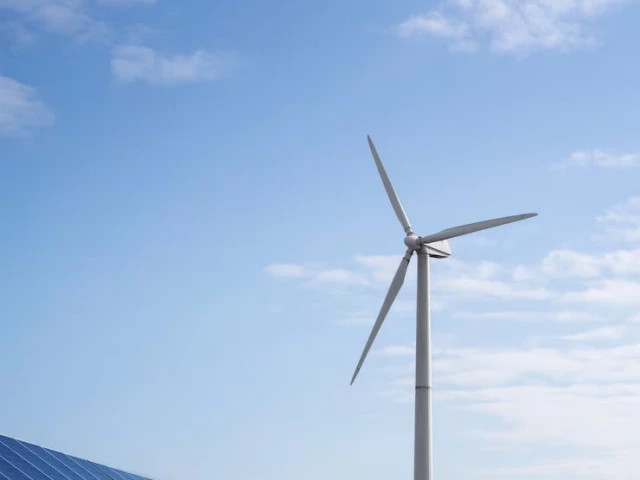'Over $100b needed for carbon-neutral energy sector'
Climate ministry says $50b required to hit 60% renewables target by 2030 despite 54% clean energy share last month

Pakistan is transitioning away from fossil fuels at a faster pace than many regional economies, with plans to generate 60% of its energy from renewable sources by 2030 to meet its emissions reduction targets.
According to global data compiled by the Energy Institute, the share of fossil fuels in Pakistan's total energy consumption declined by 4.8 percentage points from 86.7% in 2019 to 81.9% in 2023. In comparison, the average decline in fossil fuel usage among low- and middle-income countries during the same period was just 0.8 percentage points (from 90.8% to 90.0%).
Further, recent data released by the National Electric Power Regulatory Authority (NEPRA) reveals that clean energy sources, such as hydropower, nuclear, and other renewables, contributed approximately 54% to the country's energy mix last month. The government's move away from furnace oil, the most expensive source of power, is evident, as it accounted for only 1% of the energy mix in April.
These figures show that, despite macroeconomic challenges, Pakistan currently holds a relatively cleaner energy mix compared to other Asian and low- and middle-income countries. Neighbouring countries like China and India generate approximately 61% and 75% of their electricity from coal, respectively. In contrast, Thar coal contributes only 13% to Pakistan's energy mix and has played a key role in ensuring grid reliability and affordability.
"The energy baseload of Pakistan should be based on indigenous sources of Thar along with renewables to ensure affordability and mitigate geopolitical shocks. Developing economies, including Pakistan, require a balanced transition to renewable energy. Fossil fuels are crucial for short- to medium-term energy stability," said Asif Arslan Soomro, an independent economic and investment analyst.
He added that balancing environmental goals with economic stability is crucial, as an abrupt shift from fossil fuels could disrupt growth and strain an already fragile economy. The energy transition will involve enhancing or transforming the entire energy system, and this significant investment relates to the development and upgradation of infrastructure, such as hydropower plants and transmission systems, as well as the phase-out of existing fossil fuel-based power plants.
Pakistan requires over $100 billion in investment to transition to a carbon-neutral energy sector, with $50 billion needed to achieve its 60% renewable energy target by 2030, according to the climate ministry.
Soomro noted that Pakistan has been ranked as the most vulnerable country to climate change in the Climate Risk Index (CRI) 2025 report, despite contributing less than 1% to global greenhouse gas emissions.
"Even though its climate impact remains negligible, Pakistan has committed to unconditionally reduce its overall projected emissions by 15% by 2030. We have also committed to reduce emissions by a further 35%, conditional on the availability of required external financing," he added.




















COMMENTS
Comments are moderated and generally will be posted if they are on-topic and not abusive.
For more information, please see our Comments FAQ